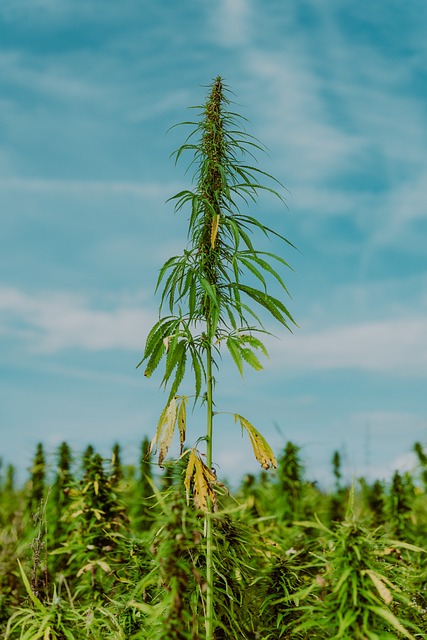2023 marked a significant shift in Arizona's cannabis industry with the emergence of THCA (Tetrahydrocannabinolic Acid) flowers as a non-psychoactive alternative to THC, becoming legally accessible for medical marijuana patients under Arizona's Medical Marijuana Act. Patients with a valid card can possess and use THCA flowers within possession limits, procured from licensed dispensaries. Cultivation of THCA flowers is also permissible for patients or their caregivers, subject to specific guidelines including plant count limitations and secure growing conditions. Arizona's regulations mandate compliance for both cultivation and processing, with legal extraction methods like ethanol or CO2 used to produce high-quality THCA products. The state's favorable stance on THCA is driven by its therapeutic benefits, including anti-inflammatory, pain-relieving, and potential neuroprotective effects, as well as antibacterial properties and heart health support. Consumers are encouraged to follow safe consumption practices, sourcing reliable products, adhering to legal age requirements, and mindful of drug interactions. As THCA is legally recognized in Arizona for its unique properties, it offers a novel addition to the state's regulated cannabis market, providing a non-intoxicating option for wellness.
exploration into the burgeoning world of cannabinoids brings us to the topic of THCA flowers, a subject that’s capturing attention for their potential benefits and unique consumption methods. As we delve into understanding their legal status in Arizona, it’s evident that state regulations play a pivotal role in shaping how these natural wonders can be cultivated and consumed responsibly. This article provides a thorough overview of the legality of THCA flowers in Arizona, charts their rise as part of the evolution in cannabis culture, and offers insights into best practices for cultivation within the state. From harvesting techniques to processing methods that maintain potency and quality, we’ll cover all aspects necessary for enthusiasts and growers alike. Additionally, we’ll explore the therapeutic properties and effects associated with THCA flowers, along with safe consumption guidelines. Join us as we navigate the nuances of THCA legal in Arizona and beyond.
- Understanding THCA Flower Legality in Arizona: A Comprehensive Overview
- The Rise of THCA Flowers: A Natural Evolution in Cannabis Consumption
- Cultivating THCA Flowers in Arizona: Navigating State Regulations and Best Practices
- Harvesting and Processing THCA Flowers: Tips for Maximizing Potency and Quality
- The Benefits of THCA Flowers: Exploring the Therapeutic Properties and Effects
- Consuming THCA Flowers in Arizona: Methods, Dosage, and Safety Considerations
Understanding THCA Flower Legality in Arizona: A Comprehensive Overview
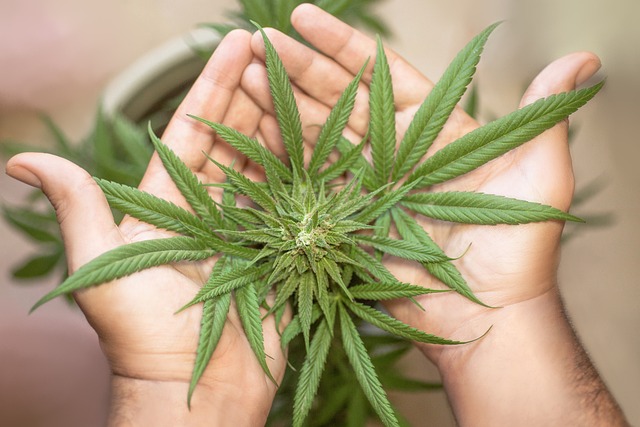
Navigating the legality of THCA flower in Arizona requires a clear understanding of state and federal laws. As of the latest updates, THCA, or tetrahydrocannabinolic acid, which is the raw form of THC found in cannabis plants, is legally permissible under Arizona’s medical marijuana program. Patients with a valid medical marijuana card can possess and use THCA flowers, provided they adhere to the state’s regulations regarding possession limits and licensed dispensaries for purchase. It’s crucial for consumers to stay informed on any changes in legislation, as laws surrounding cannabis products can evolve rapidly. In Arizona, the difference between legal and illegal possession hinges on having a medical marijuana card and not exceeding the allowable amount. For those interested in THCA flowers, it’s essential to purchase from state-licensed dispensaries to ensure compliance with local and state laws. Understanding the nuances of THCA legality is key for Arizona residents and visitors alike who wish to engage with these products responsibly and legally within the state’s framework.
The Rise of THCA Flowers: A Natural Evolution in Cannabis Consumption
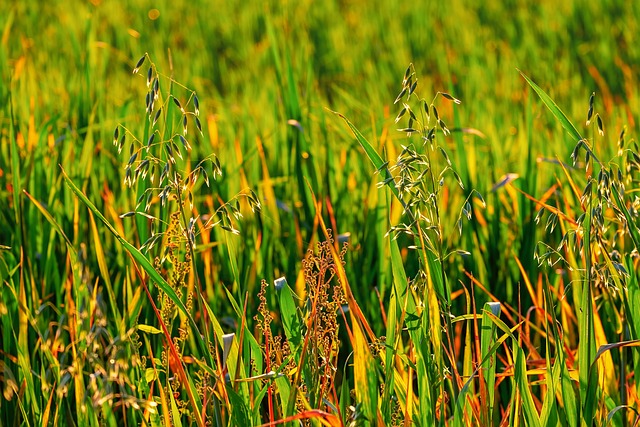
2023 has seen a significant shift in the cannabis landscape, particularly with the emergence of THCA (Tetrahydrocannabinolic Acid) flowers as a popular choice among consumers. This evolution is driven by both the demand for health-conscious alternatives and the legal developments that have made THCA legal in Arizona and other regions. Unlike its psychoactive counterpart, Delta-9 THC, THCA exists in raw cannabis or when cannabis is preserved in a live resin form before it has been decarboxylated—meaning it doesn’t induce the traditional high associated with marijuana. This has made THCA flowers an attractive option for those seeking the potential wellness benefits of cannabinoids without psychoactive effects, especially under the regulatory framework established by Arizona’s adult-use cannabis program.
The rise of THCA flowers in Arizona and beyond reflects a broader trend towards natural and untampered consumption methods within the cannabis industry. These flowers are typically harvested and dried, preserving their raw form which contains higher levels of THCA than other processed forms. Consumers interested in exploring the therapeutic properties of cannabinoids without intoxication can do so by incorporating THCA flowers into their wellness regimen. The natural evolution represented by THCA flowers is a testament to the dynamic nature of the cannabis market, where consumer preferences and legal changes continue to reshape product offerings and experiences. As such, THCA flowers have become a staple in the holistic health and well-being sector, offering a new dimension of choice for consumers who are increasingly seeking out natural alternatives with specific effects.
Cultivating THCA Flowers in Arizona: Navigating State Regulations and Best Practices
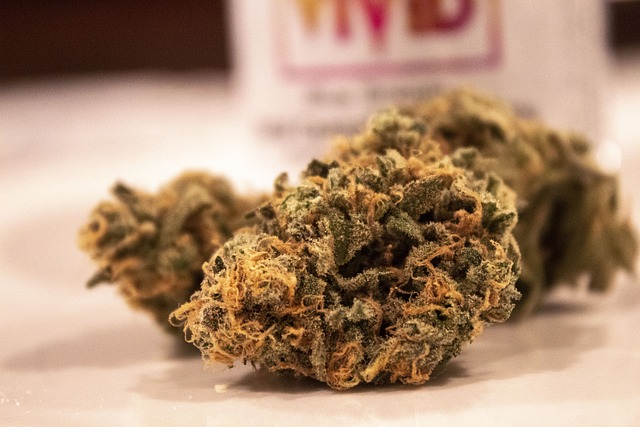
In Arizona, cultivating THCA flowers is a regulated activity under the state’s medical marijuana program. It’s crucial for prospective growers to familiarize themselves with the Arizona Medical Marijuana Act (AMMA) and local ordinances that govern cannabis cultivation. Under the AMMA, patients or their caregivers registered with the Arizona Department of Health Services can legally cultivate THCA-rich flowers for personal medical use, provided they adhere to the established guidelines. These include limiting the number of mature plants to twelve and six immature plants per patient, as well as ensuring that all cultivation is done in a private, enclosed area that is effectively ventilated and cannot be seen from public places without the use of binoculars or other enhancing devices by the ordinary observation of nearby persons. Security measures must also be in place to prevent access by minors.
Apart from legal compliance, successful cultivation of THCA flowers requires an understanding of Arizona’s unique climate and soil conditions. The best practices include selecting a strain that thrives in arid environments, optimizing the soil pH for cannabis growth, and implementing watering schedules that account for the region’s heat and sun exposure. Growers should also consider utilizing organic pesticides and nutrients to maintain the integrity of the THCA compounds and ensure a clean, potent product. Additionally, proper light management, both natural and artificial, is essential to encourage THCA crystal formation on the flowers. This not only aligns with the state’s regulations but also maximizes the therapeutic potential of the harvested cannabis for medical patients in Arizona.
Harvesting and Processing THCA Flowers: Tips for Maximizing Potency and Quality
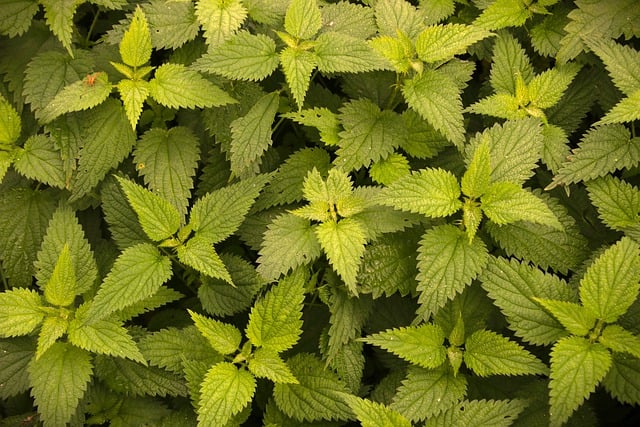
Harvesting THCA flowers requires precise timing and careful execution to ensure the highest potency and quality. In states like Arizona, where THCA is legal, cultivators must monitor their crops closely, as the timing of harvest directly influences the concentration of THCA, the precursor to THC, within the flowers. Once harvested, the drying and curing processes are critical. Dried flowers should be cured in a controlled environment with stable humidity and temperature to prevent mold growth and to allow for optimal terpene preservation. This not only enhances the flavor profile but also maintains the entourage effect that THCA is known for. It’s essential to adhere to state regulations regarding THCA cultivation, ensuring all legal requirements are met throughout the process. Furthermore, proper curing can take several weeks, so patience is key. After curing, flowers should be stored in airtight containers away from direct light to preserve their potency and prevent degradation.
Processing THCA flowers post-harvest involves various methods to extract and concentrate the desired compounds. Extracting THCA through methods like ethanol or CO2 extraction can yield high-quality, potent products. In Arizona, where the legal status of THCA allows for such processes, it’s important to follow strict guidelines to ensure the safety and efficacy of the end product. Whether for personal use or commercial distribution, adherence to state regulations is paramount. Additionally, post-processing steps like decarboxylation should be performed with precision to convert THCA into THC if desired, or to maintain THCA for products aimed at preserving the acidic form of the cannabinoid. Proper equipment and techniques are essential to avoid contamination and to achieve the best results. Understanding the legal landscape and adopting best practices in both harvesting and processing will lead to superior quality THCA flowers in Arizona.
The Benefits of THCA Flowers: Exploring the Therapeutic Properties and Effects
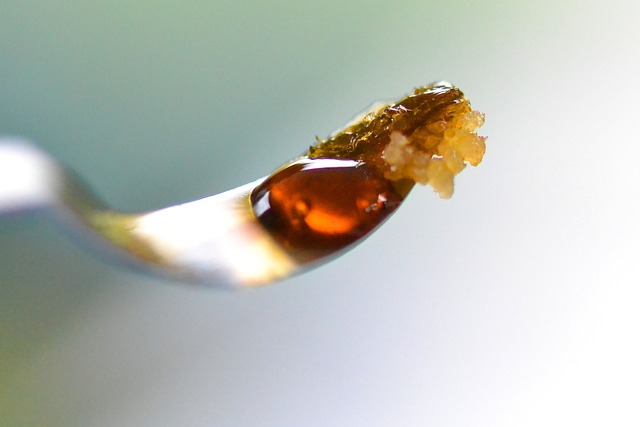
THCA, or tetrahydrocannabinolic acid, is a naturally occurring compound found in cannabis plants that has garnered attention for its potential therapeutic properties. As of the knowledge cutoff in 2023, THCA is legal in Arizona, offering residents and visitors the opportunity to explore its benefits. Unlike its well-known derivative THC (tetrahydrocannabinol), THCA is non-psychoactive, making it an attractive option for those seeking the health benefits of cannabis without the mind-altering effects. Users report that THCA flowers can provide relief from various ailments, including inflammation and pain, owing to its interaction with the body’s endocannabinoid system. The anti-inflammatory and neuroprotective qualities of THCA are also being studied for their potential in treating conditions like arthritis, multiple sclerosis, and neurodegenerative diseases. Additionally, anecdotal evidence suggests that THCA may have antibacterial properties and could potentially support heart health. With its legal status in Arizona, enthusiasts and patients can confidently incorporate THCA flowers into their wellness routines, taking advantage of this cannabinoid’s wide array of therapeutic effects. As research continues to evolve, the understanding and utilization of THCA are likely to expand, further confirming its place in the legal cannabis landscape within Arizona and beyond.
Consuming THCA Flowers in Arizona: Methods, Dosage, and Safety Considerations

In Arizona, where THCA-rich flowers have been legalized for adult use, consumers are exploring innovative ways to enjoy the potential wellness benefits of raw cannabis. THCA, or tetrahydrocannabinolic acid, is the precursor to THC and is non-psychoactive, making it an attractive option for those seeking the potential therapeutic effects without the high associated with its decarboxylated form. Consuming THCA flowers involves specific methods to maximize the absorption of THCA while minimizing the conversion to THC. One popular method is infusing THCA flowers into edibles or teas, where the acid can be consumed in its original form. This approach requires precise dosing as the effects of THCA are subtle and not immediately felt. It’s important to start with a low dose and gradually increase it based on individual tolerance and desired effects. Alternatively, some users prefer directly vaporizing the raw flowers at a low temperature to avoid decarboxylation. This method allows for a controlled intake of THCA while preserving its non-psychoactive properties.
Safety considerations are paramount when consuming THCA flowers. It’s essential to purchase from reputable sources to ensure the product is free from contaminants and accurately labeled. Users should also be aware that combining THCA with other substances, including prescription medications, could have unintended interactions. Consultation with a healthcare provider is recommended, especially for individuals with pre-existing health conditions or those taking other medications. Additionally, Arizona’s regulations allow for the possession and consumption of THCA flowers, but it’s crucial to adhere to the state’s legal age requirements and possession limits. Always store THCA flowers properly to protect them from moisture and light, which can degrade their quality and potency. With the right approach and safety measures, THCA flowers offer a unique way to experience the potential health benefits of cannabinoids in Arizona.
THCA flower tips are increasingly becoming a focal point in the cannabis community within Arizona, where their legal status is clarified and cultivation practices are refined. As this article has outlined, from understanding the legal framework governing THCA flowers to learning best practices for their cultivation and processing, Arizona residents have access to valuable insights that can enhance their experience with these potent buds. Harvesting THCA flowers at peak potency ensures consumers can fully benefit from their therapeutic properties, which this article has detailed in depth. Whether for recreational or medicinal purposes, THCA flowers offer a unique and natural way to engage with cannabis. As Arizona continues to shape its relationship with these compounds, it’s clear that THCA flowers are poised to play an integral role in the evolving landscape of cannabis consumption. With a robust understanding of their legal standing, cultivation, processing, and consumption, users can confidently explore the benefits of THCA flowers while adhering to state regulations.
